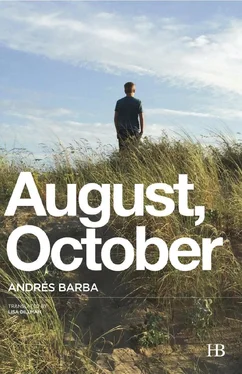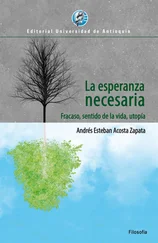Dressed as a Roman soldier, Marita takes on new grace, and he has an absurd thought: All I have to do is find out who she is . A Roman soldier with a plastic breastplate and a bent sword leading a battalion of grown-up shadows. A Roman soldier whose panties show when she bends over.
“Do you want to meet my boyfriend?” she asks.
“Of course.”
The pirate-boyfriend. And then she confides to him in an aside, “I don’t like him.”
“Why not?”
“I like normal boys.”
And just in case he didn’t get it, she adds, “Normal boys like you.”
They make their way through that game, in the memory, the Roman soldier and him. Is that the game? Pretending not to pick up on Marita-the-Roman-soldier’s flirting, or is it turning his gaze upward and suddenly seeing the day shining down vertically beneath a wide-open sky? Underneath the memory, from that second on, is a magenta-colored flame, like a subterranean river, something darkened.
“I’ve always liked normal boys, but they don’t like me.”
It’s not a heavy-hearted profession but a sweet, oafish statement of fact, like saying It’s daytime out . He gives her his hand once more. Five fingers, thick and strong, like those of a grown man.
Various scenes from the memory collide in a granular light, overlapping, piling on top of one another until an almost animal sort of presence emerges. Not seeing Marita’s face as clearly as before helps him understand it better. It’s become a state, an actual presence. He sees that in her own way, she’s proud, because when a game is being played, she uses her physical strength (she’s stronger than the others) to assert herself. He sees that she lives entirely unprotected, and that inside her brain there are dead-end labyrinths where she sometimes gets lost, like a girl collapsing in a sudden fit of desperation, as if telling herself, out of fear, that there’s nothing there . And there is no hope, but nor is there sorrow, just a teenager concentrating very hard on being nothing. A small, round nothing. He understands, too, that each part of Marita’s personality reveals a great capacity for attention, that she observes everything with care, and that he himself has become, for Marita, an object of wonder, because when his shoelace comes undone and he bends down to tie it, she says, “Let me do it, I tie laces very well.”
And she makes a double knot, too tight, lingering over it, as though wanting to savor the scene and keep it for herself.
The morning is long, with time enough for many games. In some, the families participate, partnering up with the kids; in others the children play alone and the families look on. Marita is different from the others in a peculiar way — for her, the fun of the game resides solely in being observed, so if he stops watching, she stops playing. And as he’s watching her play a game in which they have to run to carry balls from one basket to another on the opposite side of the schoolyard, it occurs to him that he knows her, pure and simple, he knows her as well as if he’d spent many afternoons like this by her side. She comes running back to him and hugs him. Her Roman-soldier body transmits its heat, its heartbeat, its physical strength. He doesn’t have to say anything to her in order to save her, all he has to do is believe in her, in the change in the air, in her gruff hand that yanks his up obstinately to make the sign of champions. He laughs. Later he’ll wonder if all solace is like that, but in the memory the thing that stands out is simply the end of sorrow.
And sometimes in the memory, he also senses that her memory of the horror is far more certain and fixed than his, and that despite it all, she’s able to carry on, as though floating in silence. When the students are made to draw pictures, he sits beside her, and she rests her head on his shoulder, a heavy head, which she lays down and then lifts up, as though it were rebounding off something soft, and then rests back down once more.
“It’s for you, the drawing.”
A woman and a dog, simple and violent, done in green, like a stain on the paper. And that’s when it occurs to him that he loves her.
Or it’s later, perhaps, when he looks at the clock and thinks he’s going to miss the bus and says, “I have to go, Marita.”
And she replies, “No.”
Or in the last half hour, when Marita accompanies him to the bus station, still dressed as a Roman soldier because she refused to take off her costume.
“I’ll go back for my clothes tomorrow; I want them to see me dressed like this at home.”
And they walk through the pine grove between the town hall and the bus station, her leaning into him, in silence.
Or at the last second, when he doesn’t know what to do with her face, so huge, so full of life, round as a pie, so close to his as they stand there by the bus, which is already full of people staring at them through the glass, and Marita says, “I’d be so happy if you were my boyfriend.”
That and the terrible urge, each time the memory surfaces, to turn back time, to become two, three, fifteen years younger, to go back to that bus station where a naïve teenage boy is hugging a girl dressed up as a Roman soldier. He waves a hand and it’s as if the physical sensation itself dissolves, as if it were made of multiple tiny particles, some more alive than others, a rain both driving and still, a cascade of unconnected sensations in which one desire burns like a red-hot ember, reaching out to him, shaking him, shouting in his ear— Kiss her, you idiot, kiss her .
Andrés Barba Muñiz (Madrid, 1975) is a Spanish novelist, essayist, translator, scriptwriter and photographer. He is the author of a total of twelve books of literary fiction, non-fiction, photography, arts and children’s literature. Among other prizes he has been awarded the Premio Torrente Ballester de Narrativa (for Versiones de Teresa ), the Premio Anagrama de Ensayo (for La ceremonia del porno ) and the Premio Juan March de Narrativa (for Muerte de un caballo ). He was also shortlisted in the XIX Premio Herralde de Novela (for La hermana de Katia , made into a film a few years after by Mijke de Jong). In 2010 he was featured in Granta’s magazine as one of the twenty-two best young Spanishlanguage writers. His works have been translated into ten languages.
Lisa Dillman translates from the Spanish and Catalan and teaches at Emory University in Atlanta. In addition to Rain Over Madrid , by Andrés Barba, some of her recent translations include The Mule , by Juan Eslava Galán, Me,Who Dove Into the Heart of the World , by Sabina Berman, Christopher Domínguez Michael’s Critical Dictionary of Mexican Literature and Yuri Herrera’s Signs Preceding the End of the World .












